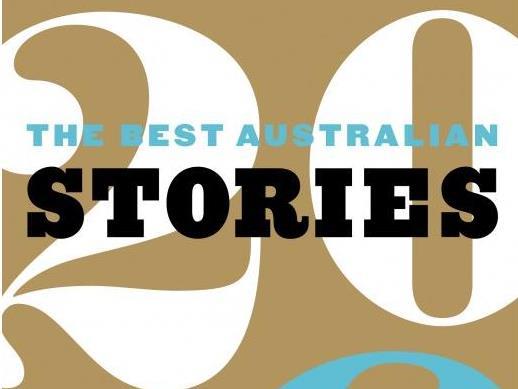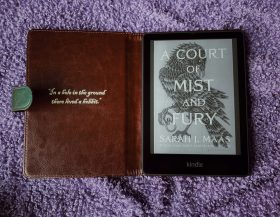Book cover: The Best Australian Stories 2016. Image via Black Inc.
If there were a narrational through-line in The Best Australian Stories 2016 it is the rumination on absence. It is arguably the collection’s great motif. As editor Charlotte Wood observes, her own ‘preoccupation’ with ghosts, monsters and visitations’ emerged in selecting the stories. From their human contours, grappling with projections – the solitary, inscrutable monster in Paddy O’Rielly’s ‘Monster Diary’ – to incidental and spirit-characters – absent fathers (‘Animals of the Savannah’, Tegan Bennett Daylight); recently deceased mothers (‘Far from Home’, Georgia Blain) – to conversations with Darwin (‘Good News For Modern Man’, Fiona McFarlane); Kafka (Love, Actually, Brian Castro) and Judy Garland (‘The Fat Girl in History’, Julie Koh). Story after story is haunted by the dead: and haunted by the living. Marriages deteriorate, memory deteriorates, as vitality itself fades (Alpine Road, Jennifer Down).
But, the collection is a survey of grief. ‘Of course a cemetery is really just a paddock waiting to be filled,’ reflects the teenage protagonist of ‘Animals of the Savannah’. In the lyrical and allegorical meditations of a father’s fears of losing a son, swimming in the fog, absence is cut through with disembodied yet acute grief (‘Moth Sea Fog’, Gregory Day). And, in the eponymous, ‘Grief’, David Brooks, unravels the intricacies of mounting emotions around the protagonist’s mother’s death.
But, this preoccupation with the ‘trio of ghosts, monsters and visitations’, as the editor puts it, is not totemic. Wood herself elaborates that space between living and dead, “is never straightforward, and never quite breached.” The liminality between worldly realms is explored, too, in Elizabeth Tan’s futuristic ‘Coco-cola Birds Sing Sweetest in the Morning’, where bird song has morphed into brand recognition in Panasonic birds; but, unspent emotion wreaks havoc, displaced in a ticket machine. In-between states affect the dark impasse of adult sexuality that shadows a girl’s burgeoning sexuality (‘Where her sister’s Live’, Kate Ryan) and in the underbelly of the teenage world of the school formal (‘Animals of the Savanna’).
But as the subject of each individual story ruminates loss, story after story stirs questions around the very medium of narrative. While the repeated focus on absence/death points toward deep, buried sorrow – perhaps regret in the collective psyche – protagonists’ become poised between being and non-being. Or the affectation of non-being. Addressing an implied reader through the form of an unanswered letter, Brian Castro’s ‘Love Actually’ suggests a formal signal never reaching its destination (“Love is a ghost in the first instance”); transfigured in an online realm, it is brutally neglected as the public performance in letter writing – it’s literary beguilement – is ultimately a journey of forgetting.
This thematic also introduces the idea of the passive narrator. Henry (Harry) Newstead unwittingly chauffers a Professor of archaeology to his unexpected death, and, being the last to see him alive, finds himself in the exposed position of telling his own story. The official narrative – unreliably told by police, newspapers, and colloquially, by the local female publican and his truth-hitting wife – is underwritten by his coming-to-identify the body both in and of the story, in his own narrational embodiment. A theme also explored in relation to gender. Julie Koh’s elliptical – and humourful – ‘The Fat Girl in History’ questions: “I wonder if my yellow skin and vagina are limiting my chances at being the next big Australian author.” Here ‘love’ seals itself into a posture of thinly veiled race relations – a casually interloped comment “maybe ‘the overwhelming attraction of some white men to exclusively Asian women is biologically the unconscious subjugation of one race by another” is met with the narrator’s repost: “I like the idea that I am fighting a civilisational battle using my vagina.”
Although it is gestural to equate disparate stories and voices – the divisions of tone, style and, at times, vaulted ambition, let alone portents of mood. But, in different ways, and to different purposes, these stories pose similar questions. Abigail Ulman’s ‘Frida Boyelski’s Shiva’, which concludes the collection, is less a narrative shoehorned into transgender issues, than a taut mediation on the collected themes. The protagonist, Frida Boyelski, the Jewish mother of daughter she always wanted, is conducting Shiva, the passing of the daughter, who is becoming a man. The sequence of visitors – her rabbi, her daughter’s childhood friends, her ex-husband – culminates, on the seventh day, with a teenage boy. And the brief colloquy that takes place relates mundanity or the ordinary that can only be profound, sorting through the trivialities of the mother/daughter-now-son relationship, the taut bond, as he helps his mother to her feet.
Tender, lively, powerful. These chronicles of displacement unlimber at length upon a figure of two minds – be it ghosts, absent parents or transgender children. Unlike a requiem, like Frida Boyelski’s Shiva, it’s not what they’ve forgotten that haunts them – an admonition to forget – but, like a counter-admonition, what they remember.
Rating: 4 stars out of 5
The Best Australian Stories 2016
Edited by Charlotte Wood
Release date: 7 Nov 2016
ISBN: 9781863958868
eISBN: 9781925435337
Imprint: Black Inc.
Format: Paperback
Size: 210 x 135mm
Extent: 240pp





